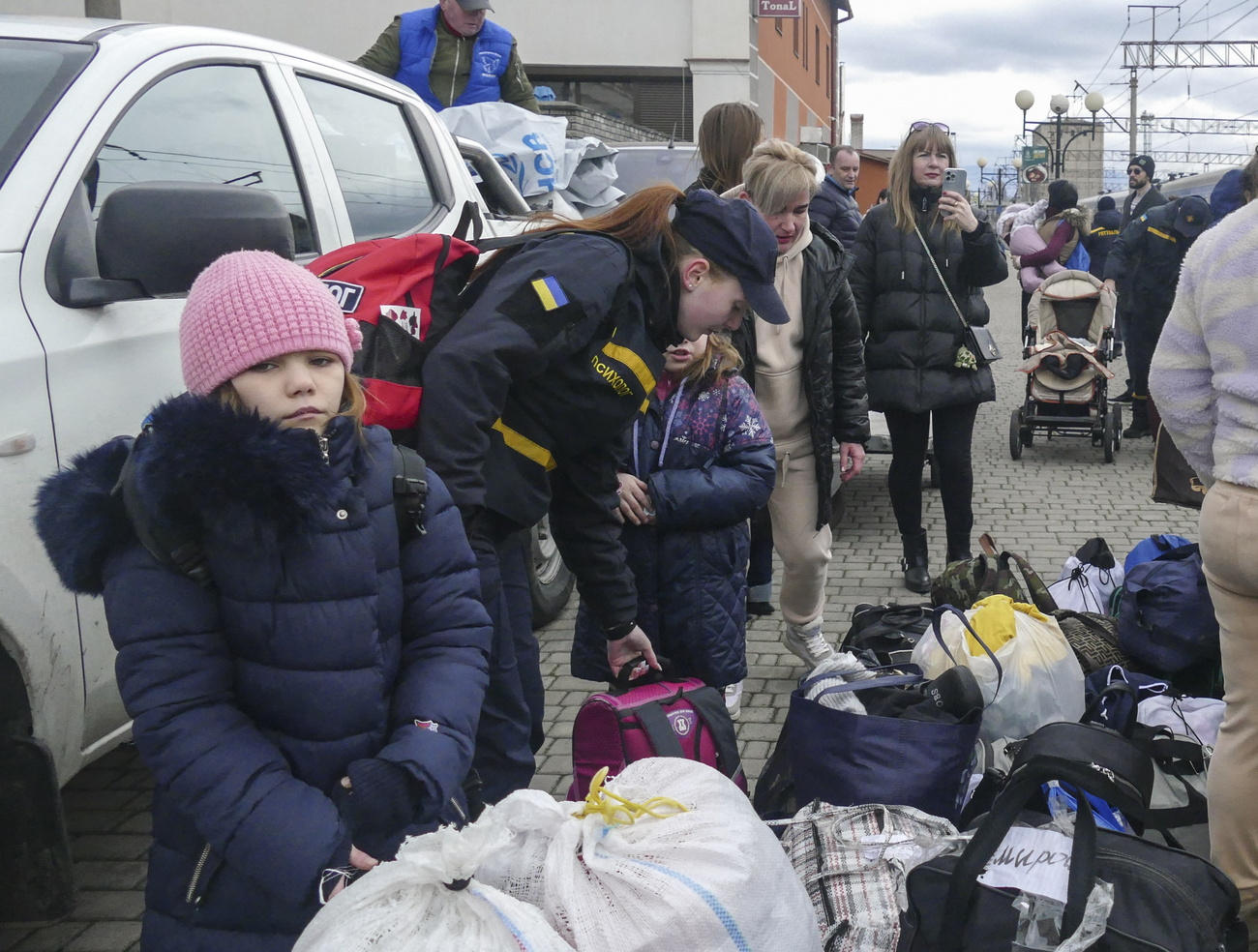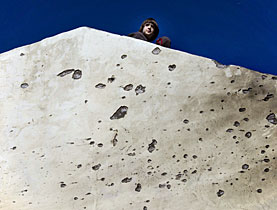
Gaza fact-finding mission ends hearings

A United Nations human rights mission has wrapped up two days' public hearings in Geneva into alleged human rights violations during the recent war in the Gaza Strip.
Israeli and Palestinian witnesses and experts gave accounts of psychological trauma and violence endured by rocket attacks launched from Gaza, and the effects of alleged crackdowns by Israeli security forces against demonstrators.
A first set of hearings held in the Gaza Strip late last month was dominated by Palestinian testimony of death and destruction in Gaza during the 22-day Israeli offensive launched at the end of December 2008, and of the effects of the Israeli blockade and siege.
The second set of hearings was held at the UN headquarters in Geneva to allow those who were unable to travel from Israel to Gaza to provide public testimony.
“The aim of the public hearings was to show the human side of suffering and to give a voice to victims so that they are not lost among the statistics,” former South African judge Richard Goldstone, head of the fact-finding mission, told journalists in Geneva on Tuesday.
The hearings, the first to be held in such a UN inquiry, are part of the Swiss-based UN Human Rights Council’s broad investigation into alleged abuses during Operation Cast Lead that killed about 1,400 Palestinians and 13 Israelis.
The 47-member council voted by a large majority in January 2009 to probe accusations of “grave” human rights violations by Israel, but the team was later given a broader mandate to deal with “all violations” during the war.
Rocket reality
On Monday members of the mission heard accounts of psychological trauma built up over years of rocket attacks by Palestinian militants, mainly on the Israeli towns of Sderot and Ashkelon, the closest to the Gaza Strip.
“This is an important but small part of our investigation,” Goldstone said of the Geneva hearings.
“What was my crime, what did I do wrong, why did I wind up in this situation?” asked 53-year-old Romanian-born doctor Emilia Siderer from the Israeli town of Ashkelon.
She was seriously injured after her clinic was struck by a missile fired from the Palestinian territory.
“I felt like a ball of fire spinning inside my face, all of my teeth flew out…but the worst is my psychological state,” said the gynaecologist who treated Palestinian women before access was blocked.
She has facial scars after undergoing six operations and still has a four-centimetre piece of shrapnel lodged near her spine.
Underlying wound
Forty-six missiles hit Ashkelon in 2008 and 25 so far this year, exploding in shopping malls, sports centres and a school, according to mayor Benny Vaknin.
Ofer Shumar, a human rights lecturer in Sderot who provided social assistance during attacks, underlined the trauma that has paralysed many of those who stayed in the town and couldn’t afford to move out.
“The real issue is the 30 per cent who have long-term effects, especially young people,” said Roni Berger of Natal, an Israeli center providing assistance to trauma victims.
Shumar sought to explain another underlying wound.
“Israeli’s society’s problem is that because of the conflict it feels itself to be a victim and to a large extent that’s justified,” he told the panel.
“It’s very difficult for Israeli society to move [past that] and to also see the other side and understand that the other side is a victim too. That’s the greatest tragedy of the conflict and it’s terribly difficult to overcome.”
Noam Shalit, father of Gilad Shalit, the Israeli soldier captured by Palestinian militants three years ago, also testified before the panel and urged Hamas to release his son.
“My son’s violent abduction and his continuing detention subject to extortion is, equally, a violation of international law,” he told the mission.
Crackdowns
A number of witnesses also described mounting crackdowns in Israel against political dissent.
According to Shir Hever, a researcher from the Alternative Information Centre in Jerusalem, some 800 people, mostly Arab Israelis, were arrested by the Israeli authorities during anti-war demonstrations.
Ten days earlier in Gaza witnesses detailed Israeli rocket strikes and artillery shelling near a mosque, a UN school and on homes across Gaza.
In one case Ziad al-Deeb, a university student, described how an Israeli shell struck the courtyard of his family home, killing 11 of his relatives and cutting off his legs. Another man described a strike on a mosque that killed 17 people.
According to child psychologist Iyad Sarraj, 20 per cent of children in Gaza suffer from post-traumatic stress syndrome bought on by witnessing violent acts.
“Biased and one-sided”
The Israeli government, meanwhile, continues to refuse to cooperate with the mission’s “biased, one-sided mandate”.
“This mission is doing things that have no precedent in the history of the UN. For example, this is the first time a public hearing like this has been held in the UN, and its only purpose is to embarrass Israel and bring the Gaza conflict back into the headlines,” Ambassador to Geneva Ronnie Lashno-Yaar told The Jerusalem Post on Monday.
Israel has criticized the mission as the Human Rights Council’s founding resolution in January did not mention Hamas. Israeli authorities refused to allow the investigators into the country.
The mission plans to release its final report for the UN Human Rights Council by September 12.
Simon Bradley in Geneva, swissinfo.ch
December 27: Israel launches aerial bombardment on Gaza.
January 3: Israeli ground troops enter Gaza Strip.
January 8: UN calls for immediate ceasefire, leading to Israeli withdrawal.
January 16: Israeli-US agreement on combating Hamas weapons smuggling.
January 17: Israeli proclaims a unilateral ceasefire.
January 18: Hamas announces its own ceasefire, conditional on an Israeli withdrawal within one week. Israeli forces start withdrawing.
Between 1,200 and 1,300 Palestinians are reported to have been killed in the fighting.
Israel says it has lost a total of 13 killed.
Amnesty International last week accused Israel and Palestinian militants of war crimes in the most comprehensive report on the recent Gaza war. Israel and Hamas both denounced the report as unbalanced.
It claimed Israel used excessive force in violation of international laws of war, killing hundreds of Palestinian civilians and destroying thousands of Gaza homes. And Palestinian militants committed war crimes each time they fired a rocket at Israeli civilians, it said.
The group’s findings were based on physical evidence and testimony that a team of four researchers, including a military expert, gathered from dozens of attack sites in Gaza and southern Israel during and after the war.

In compliance with the JTI standards
More: SWI swissinfo.ch certified by the Journalism Trust Initiative




























You can find an overview of ongoing debates with our journalists here . Please join us!
If you want to start a conversation about a topic raised in this article or want to report factual errors, email us at english@swissinfo.ch.